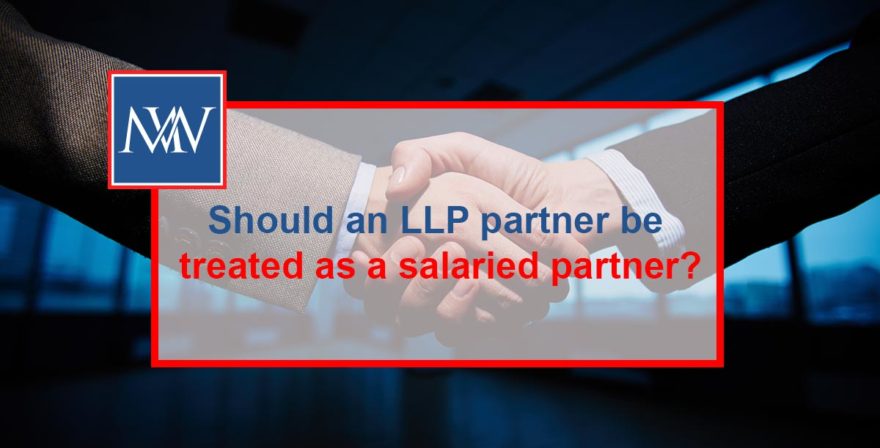
Should an LLP partner be treated as a salaried partner?
As a general rule, the individual partners in a partnership are treated as self-employed for tax purposes. Consequently, they pay tax under the self-assessment system and pay Class 2 and Class 4 National Insurance contributions on their profits.
However, in a limited liability partnership (LLP), some of the partners are more like employees in nature than partners in a traditional partnership. In recognition of this, legislation was introduced to treat such partners as employees rather than as self-employed partners, with the upshot that they are taxed on their partnership earnings (‘salary’) under PAYE rather than under self-assessment, and they pay Class 1 National Insurance rather than Classes 2 A and 4.
The rules
The salaried partner treatment only applies if all of the following three conditions are met.
Condition A is met if the partner receives a reward that is more like a salary than a share of business profits.
An amount falls within this condition if:
- it is fixed;
- it is variable but without reference to the overall amount of the profits of the LLP; or
- it is not, in practice, affected by the overall profits and losses of the LLP
However, it should be noted that payments made on account of a profit share are not treated as disguised salary and the payments are contingent on future profits being made.
Condition B is met if the mutual rights and duties of the members of the LLP and the rights and duties of the LLP and its members do not give the individual significant influence over the affairs of the LLP. This condition seeks to identify partners who do not have significant influence – in a traditional partnership, the partners are in business together and have an influence on how business is done and the decisions made. A partner who is more like an employee will lack that degree of influence.
A partner will, however, be regarded as having significant influence if they are involved in the day-to-day management. Partners acting in a senior management role who may leave the day-to-day running to others but who can exert significant influence over the strategic decision of the business will also be regarded as having significant control.
Condition C is met if the individual’s capital contribution is less than 25% of the disguised salary which it is reasonable to expect will be received by the partner in return for the services that they perform for the LLP. New partners are allowed two months in which to contribute the capital.
Implications
Where all of the above conditions are met by a partner of an LLP, the partner must be treated as an employee for tax and National Insurance purposes. Payments treated as salary are taxed under PAYE and the employee must pay Class 1 National Insurance contributions. The LLP must also pay secondary Class 1 National Insurance.
For more information, Book A Free Consultation
Need Accountancy Support?
For information on bespoke training, or if you have any other questions for Makesworth Accountant, please fill in your details below




















 148
148